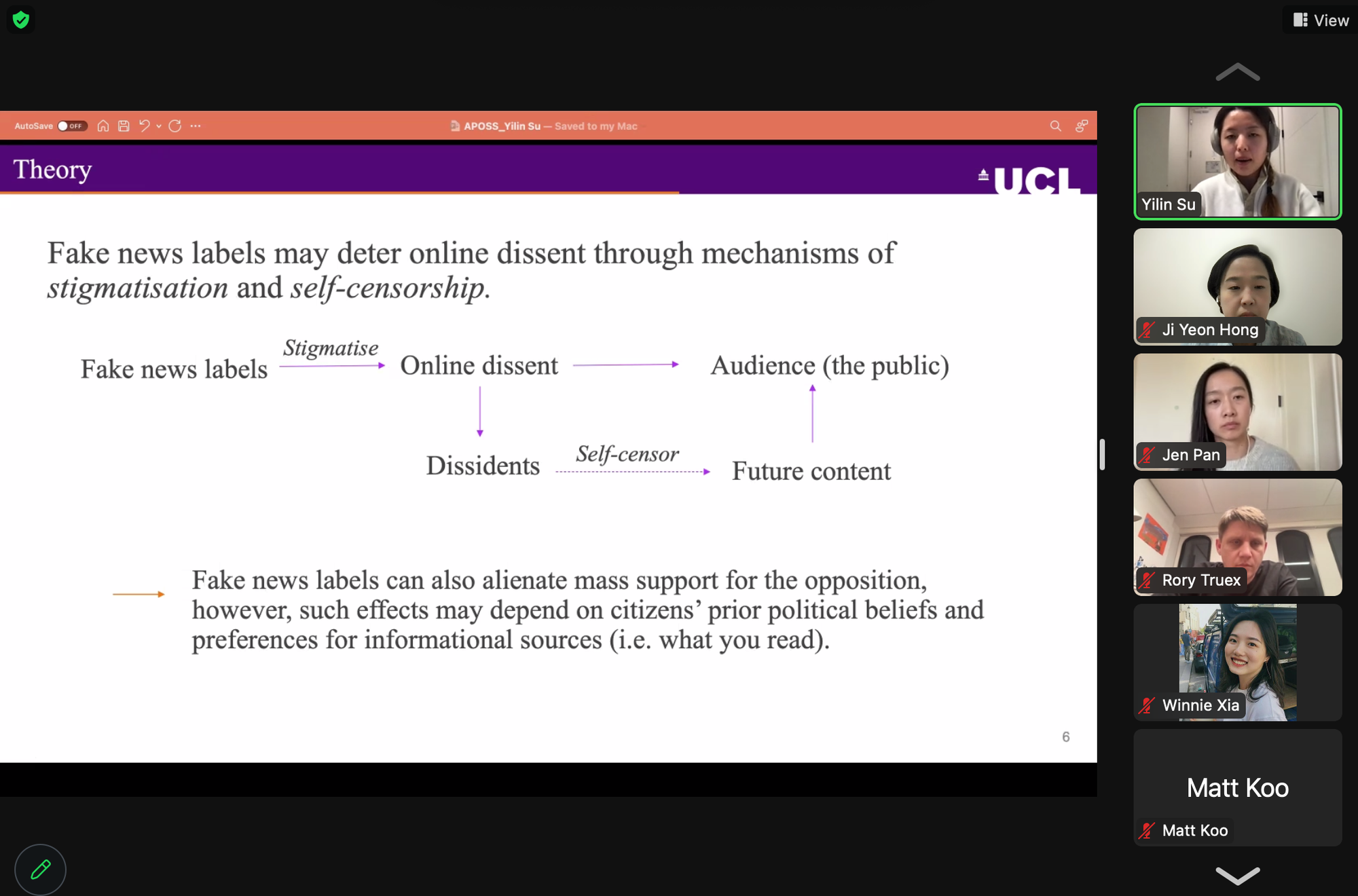APOSS 98 - Yilin Su
Affiliation
University College London
Date
March 22, 2023
9-10:00AM JST
Discussants
Jen Pan and Rory Truex
Coauthors and affiliations
Keywords
digital repression, authoritarian politics, Singapore
Abstract
The amount of information that is flagged as ‘fake” on social media and news websites is on the rise. In non-democratic regimes, the authorities can flag social media posts as ‘fake’ in order to impede criticism and compromise their opponents’ ability to generate support. However, we know very little about these measures’ effect on online activity and offline public opinion. I propose that the use of fake news labels in nondemocracies is a strategy for nonviolent repression. I argue that when the authorities issue fake news labels, the opposition’s ability to mobilise online is compromised through mechanisms of stigmatisation and self-censorship. Fake news labels can also alienate mass support for the opposition, however, such effects may depend on citizens’ prior political beliefs and preferences for informational sources. In this work, I investigate first, under what conditions non-democratic regimes use fake news labelling as repression and, second, how the use of fake news labels influences online social media activity and offline public opinion towards targeted users. I will draw on evidence from a cross-national dataset of fake news labels from a global sample of nondemocracies and an original survey experiment from Singapore. My findings will provide one of the first tests of the political effects of disinformation labelling. This work expands understanding of online repression’s consequences and audiences and has implications for studies of authoritarian politics.
Status
Title
“This Post Contains False Information”: How Do non-democratic Governments Use Fake News Labels to Restrict Online Dissent

